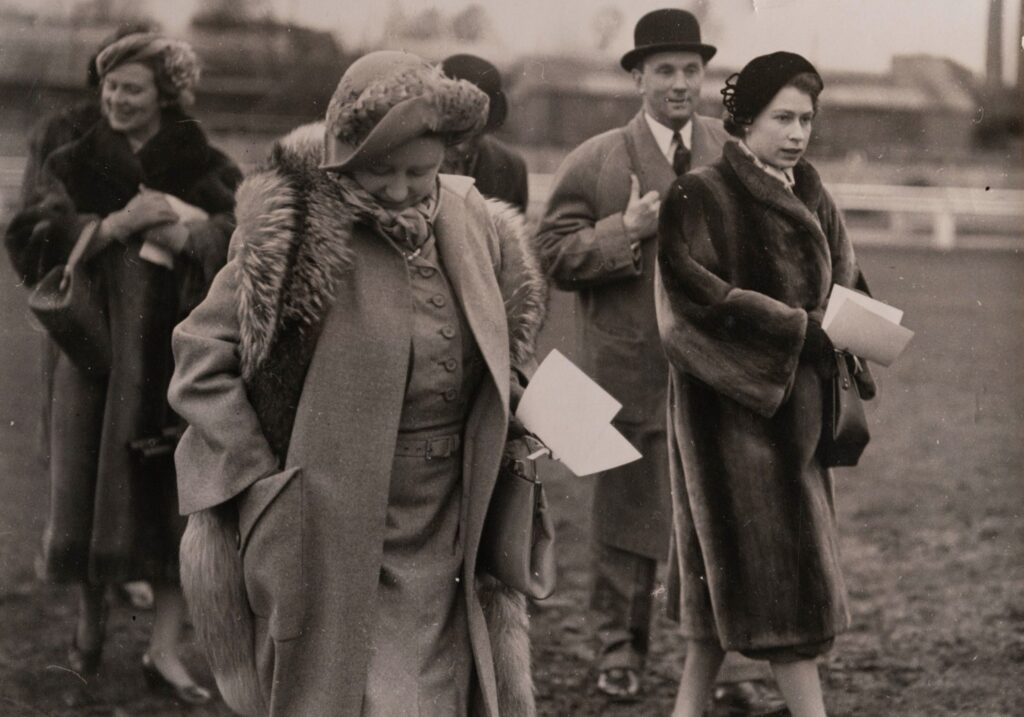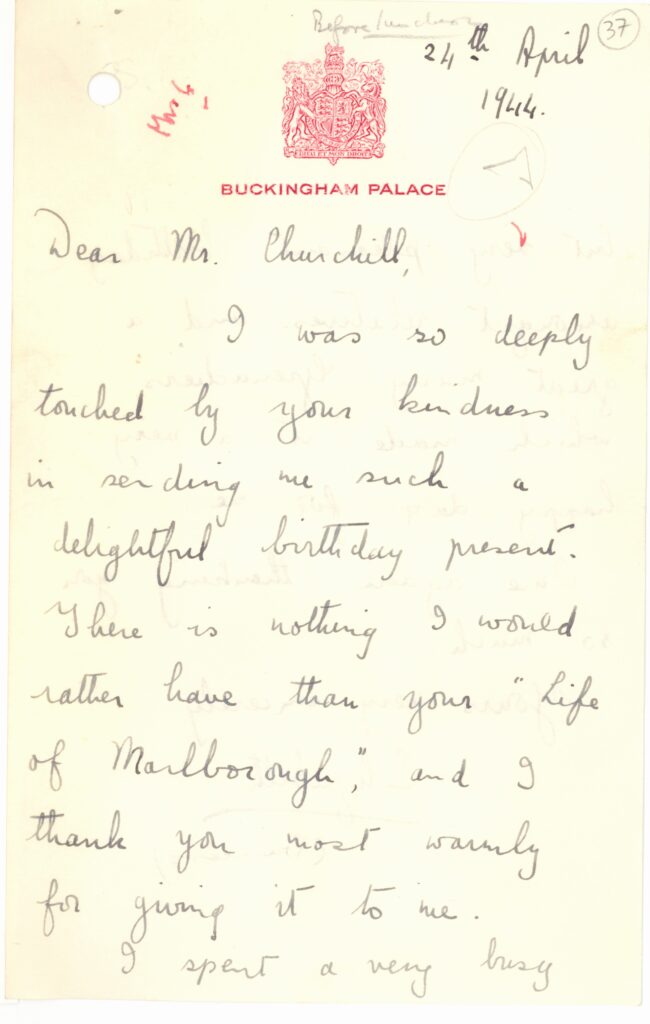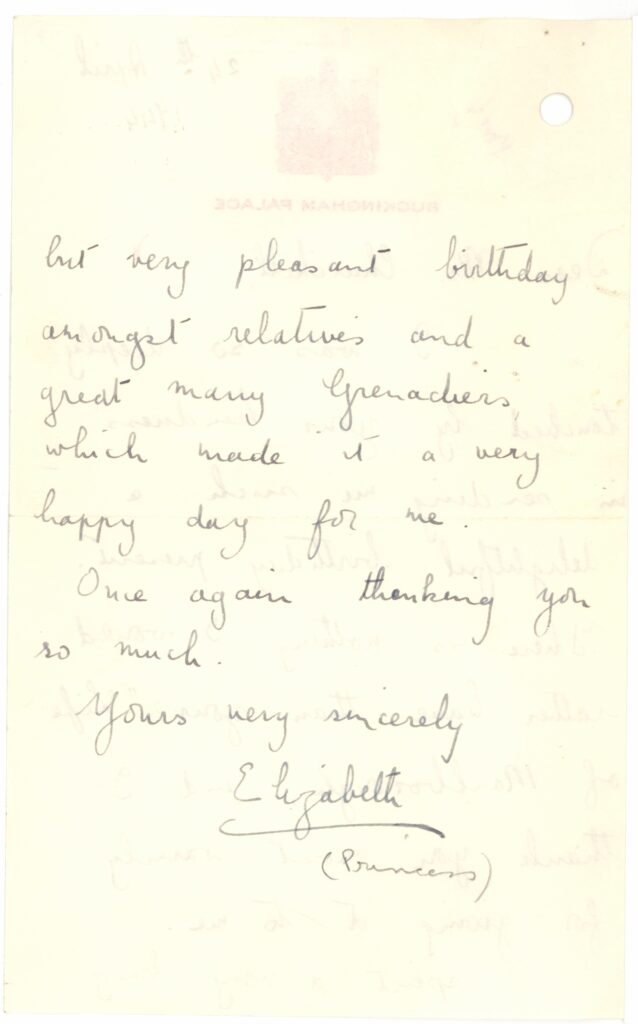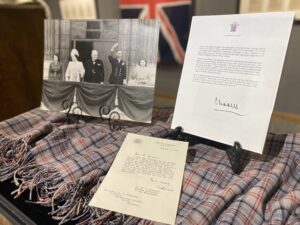
Finest Hour 199
“Thank You Most Warmly”

The Queen Mother and the Queen at the races, Churchill Archives Centre, SALM 1 1A
April 20, 2024
Princess Elizabeth Writes the Prime Minister
Finest Hour 199, Special Issue 2022
Page 29
By Allen Packwood
Allen Packwood OBE is Director of the Churchill Archives Centre.
Churchill College in Cambridge is the British National and Commonwealth Memorial to Sir Winston Churchill, but it is also very much a product of what Churchill termed the second Elizabethan age.
Churchill was prime minister at the time of the death of the late Queen’s father King George VI on the night of 5–6 February 1952. In his broadcast to the nation on 7 February, in words that seem very poignant today, Churchill described how the sad news “struck a deep and solemn note in our lives which, as it resounded far and wide, stilled the clatter and traffic of twentieth-century life in many lands and made countless millions of human beings pause and look around them. A new sense of values took, for the time being, possession of human minds and mortal existence presented itself to so many at the same moment in its serenity and in its sorrow, in its splendour and in its pain, in its fortitude and in its suffering.”
Churchill ended by turning to the future and the beginning of the reign of Queen Elizabeth II: “Famous have been the reigns of our Queens. Some of the greatest periods in our history have unfolded under their sceptres.”

2024 International Churchill Conference
Churchill was not only the new Queen’s first prime minister but, as we now know, the first of fifteen different men and women who served Her Majesty in that capacity. Churchill College has hosted many of them, and the Churchill Archives Centre serves as the repository for the papers of several of those premiers, including most notably Sir Winston himself. Until now, however, the college has ever known only one sovereign.


Her Majesty formally created the college by putting her seal to the charter in 1960. Additionally, the Queen’s husband, the Duke of Edinburgh, agreed to become the College Visitor, making him an overseer who could give advice as well as determine disputes arising between the college and its members. At the dedication ceremony for the College, Churchill said, “It was singularly appropriate that His Royal Highness should occupy this position.” The royal connection continues: after the appointment of the first Master of the College, all subsequent masters have been appointed by the Crown.
Among the many items preserved in the archives that record the long and harmonious relationship between Churchill and the Queen is a thank-you letter that the Prime Minister received during the Second World War from then Princess Elizabeth on 24 April 1944, just three days after her eighteenth birthday and only weeks before D-Day. Churchill had given the heir to the throne a copy of his biography of the first Duke of Marlborough. The Princess wrote:
I was so deeply touched by your kindness in sending me such a delightful birthday present. There is nothing I would rather have than your “Life of Marlborough,” and I thank you most warmly for giving it to me.
I spent a very busy but very pleasant birthday amongst relatives and a great many Grenadiers, which made it a very happy day for me. Once again thank you so much.
Another item of interest is a candid photograph of the Queen relaxing at the races with her mother. The above image survives in a scrapbook kept by Vanda Salmon, who had previously worked as a personal secretary to Sir Winston.
There are other such treasures in the archives that document the friendship and respect between two of the Greatest Britons. Research into this fascinating subject will no doubt go on for many years to come.
Subscribe
WANT MORE?
Get the Churchill Bulletin delivered to your inbox once a month.




